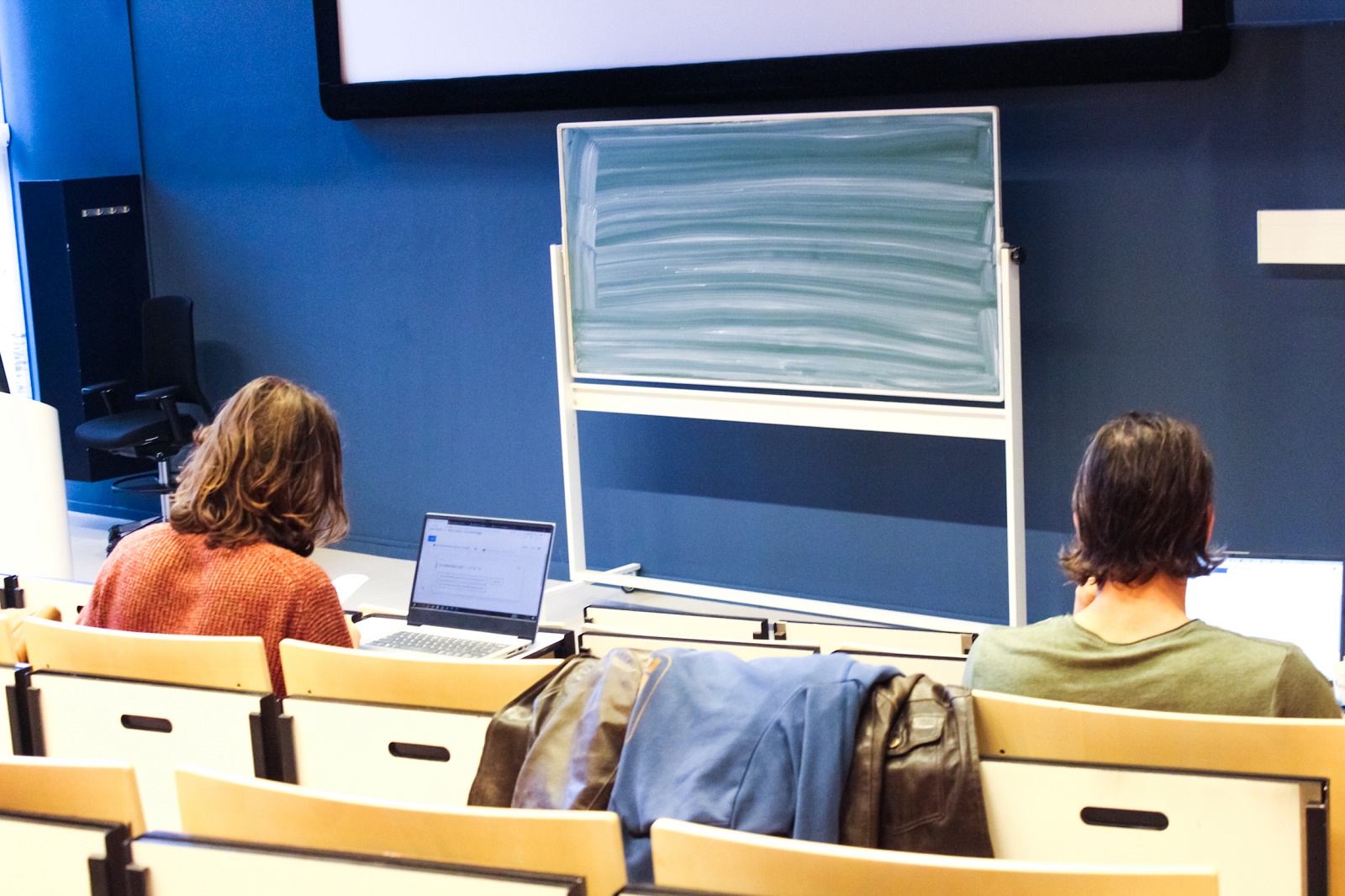Online education has become the norm. Students hop between Brightspace, Zoom, WhatsApp and Teams. What about loneliness? “I only know seven people on my course.”
“The best lectures are the usually the ones on-campus.” (Photo: Dalia Madi)
Earlier, Delta spoke to some teachers of large first year subjects about their experiences and the logistical challenges of online teaching. It’s now the turn of students. What problems do they face? Delta asked students at different faculties, and of different study years and backgrounds.
Quite lonely
First year students had imagined university to be very different. Fewer of them are renting rooms as there is less need. They have also never met the large majority of their fellow students. “Online learning is quite lonely. I only know seven people from my course, and I only see them a couple of hours a week,” says Adriaan Koeman, first year Mechanical Engineering student.
“I shouldn’t really complain,” says Salomé Tiemersma, first year Industrial Design Engineering student. “Compared to other universities, TU Delft is giving quite a lot of physical education. But it’s still crazy that I haven’t even seen most of my classmates.”
Another disadvantage is that the students can’t encourage each other to move forward. Doing an assignment on your own is slower as if you get stuck, you have to look for answers yourself. “I have still not found a good way of working together remotely,” says Adriaan. Salomé adds that “I didn’t understand everything in the first few lectures. I missed having someone next to me to ask where we were.”
‘The couple of on-campus lectures that we have had so far have been the most exciting’
Still, online education does have its advantages. Students who do not live in student rooms only need to come to TU Delft once or twice a week. A few videos on collegerama show that even before the corona crisis many students chose to watch lectures at home instead of coming to campus. This has become more common now. Even if it is possible to attend a lecture physically, it appears that only a few are doing so.
At the same time, some students value physical education. “The best lectures are the usually the ones on-campus,” says Salomé. “The working atmosphere that you create with your group makes it easier to focus your attention on work.” The social aspect is of course also valuable. Christoph Haasis, international Civil Engineering student, says that “the couple of on-campus lectures that we have had, have so far been the most exciting of the whole academic year. It was fantastic to see so many familiar faces again at one go.”
On-campus education does bring its own challenges. Even if there is enough distance between the seats and everyone complies with the regulations seriously, it is still difficult to maintain distance if you are walking down the corridor deep in discussion, says Adriaan. Christoph agrees. “Maybe it would be a good idea to wear masks between lectures,” he suggests.
Being flexible
While first year students still do come to campus occasionally, master students work almost exclusively online. Applied Physics master student Jan-Willem sums up the online channels: “Brightspace for the documents; Zoom for the lectures; Discord for the tutorials; WhatsApp for discussion with your group; and paper forms for signing up for the tutorials. All of these are for just one subject. And I also use Microsoft Teams to consult my thesis supervisor.”
“Physical education would not add much for master students,” says Civil Engineering international student Shirley Feng. “Maybe academically this is the case, but socially, it’s a real pity.” Christoph adds that “I don’t think that students were taken into account in that decision.”
The corona limitations are even worse for international students. A slight delay in your master’s thesis because of limited access to the laboratories is a lot more complicated. Some international students did not return to TU Delft after summer. Shirley understands that. “Some subjects only consist of watching old lectures and an exam. I too doubted if it was worthwhile staying. But because I was just getting settled in, I decided to stay.”
UB No more Library
Before corona, people were studying all over campus. The staircase to the Library was full when the doors opened at 08:00. Whatever TU Delft did, there were never enough study spots. Opening the lecture halls and the new Pulse and Echo buildings created more space, but demand did not go away.
‘Some teachers put much work into giving real lessons’
Now that all those students suddenly have to study at home, where there are more distractions and where it is harder to establish a good study routine. Christoph says that “Staying motivated at home is a challenge. I couldn’t concentrate at first so I set timers for 45 minutes and started at 08:45, just as on campus. That helped.” For Adriaan, “In the first few weeks it was hard to know how much I needed to do for each subject as only 20 of the 42 required study hours were scheduled.”
Hard to compare
The students interviewed think that the education is suffering under all the measures. They value the efforts that TU Delft is making, but they believe that physical education must stay. “It depends on the subject,” says Shirley. “Some teachers really put a lot of effort into giving real lessons. In other subjects, not even contact times are scheduled, not even online.” Salomé does not think that she is learning less than the first year students last year. “But the way in which I am learning is very different. That makes it hard to compare.”
Chiel de Groot / Intern science desk



Comments are closed.